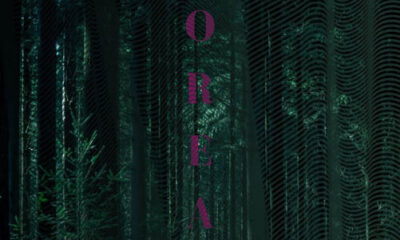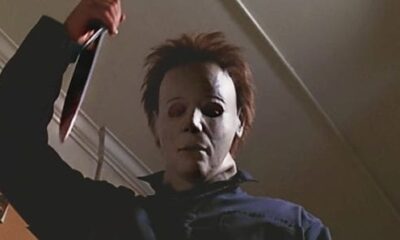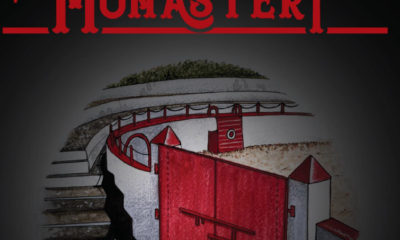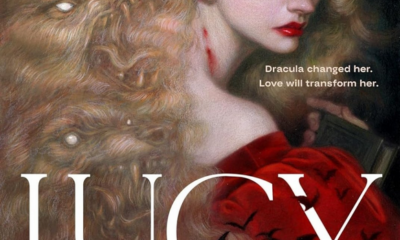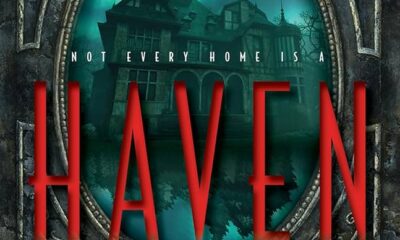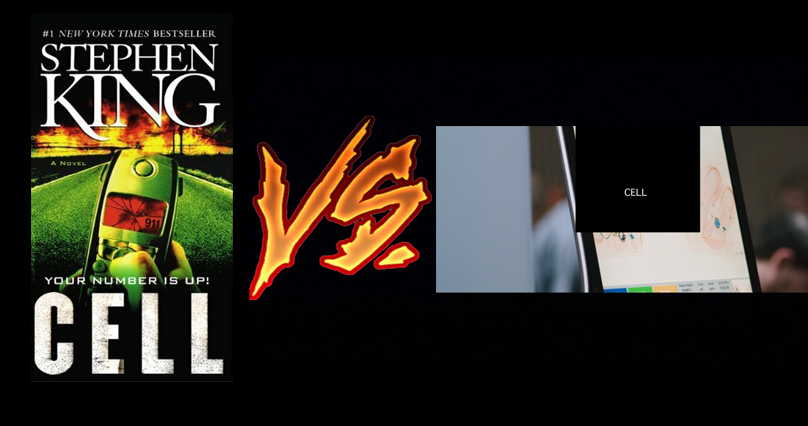
Cell VS. Cell
More Videos
Published
4 years agoon
By
Audrey IIICell is that Stephen King book and movie that everyone forgets is a Stephen King book and movie. It might be because when you think of Stephen King you don’t usually think of zombies, and when I think of Cell I don’t necessarily think of zombies either. Whether or not Cell is really part of the zombie horror genre, I leave that up to you the reader to decide.
Cell – A Book
Clayton Riddell is an unassuming graphic artist who’s on his way home from Boston after landing the deal of a lifetime to publish his own graphic novel. Unfortunately for him, this is the day that “The Pulse” happens. The Pulse is an entirely phone based event where anyone who’s on their phone at around 3 in the afternoon on October 1st sometime in the mid-2000s gets their mind wiped causing them to suddenly and violently go crazy. Mass murder and mass panic ensues. As hysteria reins and people try to call for help more get hit by the Pulse and the Apocalypse begins.
Clay, who’s cell phoneless, avoids the Pulse, but from his vantage point on a random Boston street corner, things go downhill fast as “phone crazies” attack and kill people all around him. During the initial chaos Clay manages to save a gay guy named Tom McCourt, who joins him for the rest of the book for lack of anything better to do. Eventually they also pick up a traumatized 14 year old girl named Alice.
Fleeing Boston as it burns, our mains become refugees in the cell phone Apocalypse. Clay’s main objective is trying to get home to his wife and son Johnny G (they must have been really big fans of Kenny G is all I can think), Tom really wants to check on his cat, and Alice is mostly just coming along with them since she had to kill the only family she had apparently. They meet other “normies”, none Pulse affected people, along the road, and it is a very long road. There might be more walking in this book than in the whole ten seasons of The Walking Dead combined.
The phone crazies aren’t your typical “brainssssss” zombies. They might bite and stab, but they’re not after your juicy human meats. After the initial homicidal panic from the Pulse, they quickly start to change and evolve into something entirely different. You learn how all this happens from a 12 year old character in the book named Jordan, who apparently can figure all this out because he knows computer basics. As the phone crazies go from individual threats to a hive mind, Clay and his band become targets of the phone crazies new world order.
Thoughts – An effort was made
This book, more than anything else, feels downright frustrating. From the big flashing TECHNOLOGY BAD sign throughout it, to the one note characters, to the lack of clarity into just how the Pulse happened, and the halting pace of the entire book where things start to pick up only to slow down again to mourn for characters that you don’t really care about all that much about. Clay is not a very interesting main character to spend an entire book with. His one and only concern is to get home to his wife and son; no thoughts for other family, friends, coworkers or the greater effect the events that are unfolding around them are going to have on the future. As eager as Clay is to get home though, there are so many detours that slow the whole book down that at times it seems like the book is trying to replicate a phoner in reboot mode. As much as the book tries to push the found family trope it falls flat in that effort too. Despite spending time getting to know random characters, the fact remains that these were people Clay met only a hour to a day or two ago, so any real connection between the characters is somewhat lost.
The beginning of the apocalypse here, which takes at least 100 pages, could be the same as any typical zombie or plague movie or book (think World War Z on a local level only with the most average guy ever instead of Brad Pitt). It’s not until the phoners start changing to something other than mindless zombies that things really get interesting. The characters actually start to have some doubts and moral dilemmas about the mass killing of beings that used to be human, but may not be any longer. The problem is, things also get so convoluted and motivations of the phoner hive mind remain so dim that the big climax and the ending of the book feels supremely unsatisfying as a whole.
The book may hold more disappointment for me than enjoyment, but it’s not the worst book I’ve ever read, nor even the worst Stephen King book, but it’s still not ranked anywhere near the top of my Stephen King must read list.
Cell – A Movie
This may be a rare instance where a movie is actually better than the book it was based off of. Perhaps it’s because the movie trims all the unnecessary fat and characters from the book to fit it into its hour and a half running time, but the entire premise seems to work better as a movie. The screenplay is still written by Stephen King and Adam Alleca, and the plot is basically the same as the book, with a few key differences.
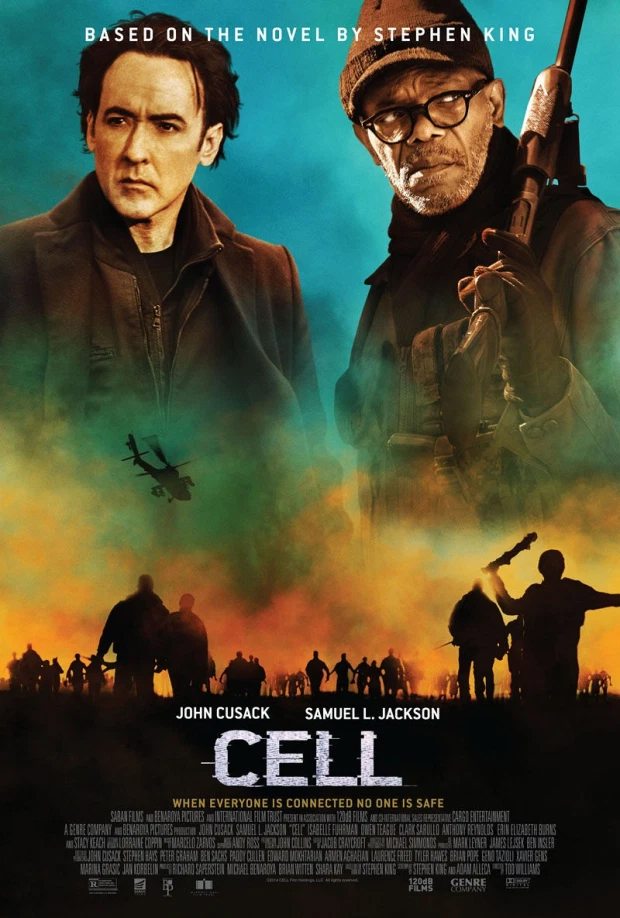
Clay in the movie is played by the ever pleasant and sad eyed John Cusack, who brings a real feeling of humanity to the character of Clay that was lacking in the book. Clay’s still a graphic artist on his way home to his estranged wife and son, only now the phone Apocalypse starts for him in a Boston airport, which is a much more exciting start than a random street corner.
Escaping the chaos at the airport for the subway, Clay runs into the movie version of Tom, played by Samuel L. Jackson, who bears pretty much no resemblance to Tom from the book. Movie Tom is now a subway driving, Vietnam vet, devoice who, like Clay, is caught up in everything going on. To the movie’s credit, there is a throwaway line that Tom is still gay, even if it’s blink and you’ll miss it. Tom has Clay’s down to earth attitude about the end of the world and it’s easy to understand why they might stick together this time around. They also find their own traumatized Alice Maxwell, played by Isabelle Fuhrman.
Perhaps the biggest change from the book to the film is the sense of solitude the survivors experience while heading north. Wide shots of isolated cell phone towers in nature add to the feeling, and the low budget independent film look of the movie makes for some realism in a way that World War Z or the Dawn of the Dead remake lacks. When the leads do run into other normies, instead of the stereotypical Stephen King crazy religious ladies or redneck yokels from the book, you get some likeable average Joe type people who are willing to help Clay’s crew out. Even character deaths of one-off characters in the movie seem to hold more weight than they do in the book.
The phone crazies powers are trimmed down from the book as well, and at the same time become much scarier when they start admitting the Pulse (which sounds a lot like an AOL dial-up tone) from their mouths in order to infect remaining normies. At that point it becomes a survival of the fittest species type movie.
After King changed the ending for the movie from the book because of criticism of the book ending, the movie ending is still just as confusing. While the book’s ending is a bit more on the hopeful side, in general I still preferred the new movie ending to the book ending.
But seriously, don’t ask me what’s going on here cause I haven’t got a clue.
Final Girl Thoughts
If you’re the type of person who needs every plot point explained in great detail, this is definitely not the book or the movie for you. If you like your apocalypses more on the confusing side, then you might enjoy Cell. There’s some of the typical Stephen King unusualness that happens, the shadowy figure haunting the mains every step (this time called the Raggedy Man or the President of Harvard or the President of the Internet, whichever you prefer) and characters having psychological breakdowns on the regular. Cell, both the movie and the book, definitely have that Stephen King mark on them, though they perhaps lack the deeper themes that make for a real Stephen King classic. My recommendation, watch the movie for free on Tubi and skip the book entirely.
 (3 / 5)
(3 / 5)
You may like
Book Reviews
The Hotel: We’ll All Be There Soon.
Published
2 weeks agoon
March 17, 2025By
C M ReidDaisy Johnson’s, The Hotel is a collection of stories that tell the tale of a hotel built on cursed land. Originally written and recorded as a series for BBC Radio 4 in 2020, (you can find the recordings here https://www.bbc.co.uk/programmes/m000mrcg/episodes/player )
The fourteen-story collection was released in hardcover in 2021. Johnson’s prose is haunting, weaving together the stories of generations of families who have been tempted, forced, or serendipitously dumped at The Hotel. Most leave the message, “I’ll be there soon,” and many disappear from room 63.
- ‘The British literary heir to Stephen King’ Johanna Thomas-Corr, Sunday TimesA triumph of contemporary horror from the Booker Prize-shortlisted author, this collection of short stories will haunt you long after you turn the final pageA place of myths, rumours and secrets, The Hotel looms over the dark Fens, tall and grey in its Gothic splendour
- Built on cursed land, a history of violent death suffuses its very foundations –yet it has a magnetism that is impossible to ignore
- On entering The Hotel, different people react in different ways
Last update on 2025-03-17 / Affiliate links / Images from Amazon Product Advertising API
The Plot.
The Hotel tells the stories of the people who are drawn to The Hotel, or, more accurately, the ground the hotel is built on. The first story explains what we know about the hotel, its tendencies, moods, and … hobbies. We are then introduced to Mary Southgraves, ‘The Witch’, who comes to live with her husband on the land on which The Hotel will be built. The villagers in the pond drown her for predicting a sickness that takes the village children, (no this is not a spoiler she tells you she dies on the first page of her chapter.)
The proceeding chapters build upon this story. We meet the workers who are brought in to fill the pond to begin construction. A child of a guest in 1968 who meets another girl who may or may not actually be there. A maid who takes part in séances and Ouija board sessions. The stories progress through time into the present.
Highlights.
The haunting prose of The Hotel does the majority of the heavy lifting for this collection, which makes sense since it began as a podcast series. Johnson’s prose leans towards poetry, albeit more Poe than Keats.
The repetition of specific characters and family names throughout the different stories was intriguing, giving the stories links. These links trigger a sense of recognition for the reader. There is also a sense of anticipation, knowing what has happened to these families already, we wonder how much more they can withstand. The Hotel is like a curse following these families, but I think Johnson is commenting on lineage and the consequences of past actions. The sins of the father and all that.
- Fifteen highly original and darkly unsettling supernatural stories, performed by some of Britain’s finest actresses ‘This is what we know about The Hotel
- It is bigger on the inside than on the outside
- Do not go into Room 63
Last update on 2025-03-17 / Affiliate links / Images from Amazon Product Advertising API
Drawbacks.
These stories can get confusing at times and I think this is due to the briefness of the stories. It’s hard to keep track of a character that you have spent four pages with and remember them three stories later. I found myself having to stop and turn back to check if that person was who I thought they were. This pausing to turn back interrupts the reading experience. It pulls you out of the story and destroys the atmosphere that Johnson has worked to create.
The Final Take.
The Hotel was an interesting read. Johnson is a talented writer who has published a collection of linked stories that will keep the reader turning pages if only to find out the final fate of these families. That being said, it is obvious that the stories were initially written for a podcast. I’m not sure if it’s the way they are put together or… I don’t know, there’s just something ‘podcasty’ about them. As such I would recommend listening to the audio episodes (see the link above) over reading the book.
 (3 / 5)
(3 / 5)
On Halloween in 2016 Josh Malerman, author of Bird Box, released A House At The Bottom Of A Lake (gosh this is a hefty title!). Last week, I picked this slim book up off my library’s Adult Horror shelves, not knowing what to expect. What I got was a novella that should have been shelved in the teen lit section. Perhaps it is the rather weird underwater sex scene that precludes it from those shelves.
- From the New York Times bestselling author of Bird Box and Malorie comes a haunting tale of love and mystery, as the date of a lifetime becomes a maddening exploration of the depths of the heart
- “Malerman expertly conjures a fairy tale nostalgia of first love, and we follow along, all too willingly, ignoring the warning signs even as the fear takes hold
- ”—Lit Reactor The story begins: young lovers, anxious to connect, agree to a first date, thinking outside of the box
Last update on 2025-03-10 / Affiliate links / Images from Amazon Product Advertising API
The Plot.
When James asks Amelia out on a date during summer break, canoeing was the last thing that she expected. Borrowing his uncles canoe, James hopes he can show Amelia an exciting time, because he really likes this girl! The date starts well and the conversation, if stilted at times, is banter-ey and cool.
They head out on the first lake, but James has an idea that they might have a better time on the lake that joins to this one. It is quieter, no speed boats to show him up, they’ll be able to eat their picnic lunch in peace and quiet. When they arrive, though, they notice a tunnel, that may lead to a third lake. Eager to show Amelia that he is an exciting kind of guy, James heads through the tunnel.
Lo and behold, it is another lake! Albeit, a bit murky and deserted, but that’s alright. That is until they notice that beneath the bow of the boat is a tiled roof. Beneath that tiled roof is a whole house. What ensues is a summer of falling in love and exploring a sunken house that may not be as empty as they thought.
Highlights.
Malerman writing the internal monologue of an angsty seventeen-year-old on a first date is one of the most authentic things I’ve read for a long time. Even down to James worrying about revealing that his dad owns the hardware shop he works in. Scared that Amelia will think that is all he is going to do with his life.
The ending (which of course I cannot discuss here) was well done, although a little contrived and predictable. It felt as if it had been almost tacked on the end as an afterthought. Perhaps Malerman finished the story without the final chapter, but was encouraged to add that last bit to give readers some closure
- “A book that demands to be read in a single sitting, and through the cracks between one’s fingers
- There has never been a horror story quite like this
- Josh Malerman truly delivers
Last update on 2025-03-10 / Affiliate links / Images from Amazon Product Advertising API
Drawbacks.
Malerman is a good writer, we have seen this in the many novels he has released since Bird Box. A House At The Bottom Of A Lake did not meet the usual standard. There are many reasons I say this. The first is a lack of creativity in descriptive passages in this book. They all felt pretty drab and began to become repetitive by the end of the story. I don’t know how many, times Malerman compared the way that James and Amelia were moving under the water in their scuba suits as ‘Astronaut-like’ or ‘Astronaut-esque’ or ‘ Like he was walking without gravity’, but really can you find another comparison please because this one is all used up!
As I mentioned in the intro, this did feel like a YA novel. Not only because both of the main characters are seventeen, but the prose is a too simple to be engaging. A House A The Bottom Of A Lake might be marketed differently in Australia (where this humble reviewer lives), perhaps making it to the YA shelves in the US or UK, but this is definitely not adult horror.
The Final Take.
Josh Malerman is a favorite of mine. I tend to pick up his books, blurb unread, because I will generally enjoy what he is putting out there. The exception to this rule is A House At The Bottom Of A Lake (if I never have to type that title again I will be pleased!). It just didn’t hit the way his other novels have and I was disappointed.
 (2 / 5)
(2 / 5)
Imagine this. You’re home alone, waiting for your partner to return, when you hear a knock on your door. You answer it to see a family of five, bundled up against the cold. The father, a kindly older gentleman, explains that he used to live in this house as a boy. And he would love to show it to his family.
Do not let them in.
The story
Released in June 2024, We Used To Live Here is author Marcus Kliewer’s debut novel. It tells the story of Eve, who just purchased a beautiful house with her partner, Charlie. Their plan is to flip the house and sell it.
One night, while waiting for Charlie to come home, Eve is surprised by a knock at the door. It’s a man named Thomas Faust and his family.
Thomas explains that he grew up in the house and hasn’t been in the area in years. Would Eve let them in so that he can show the home to his children?
Against her better judgment, Eve lets them in. She regrets this almost at once when Thomas’s daughter vanishes somewhere into the house.
What worked
I always appreciate a book that allows you to play along with the mystery. And this book does that better than just about any other I’ve seen.
Pay close attention to the chapters, to the words that aren’t there. To everything about this novel.
This is mostly down to Kliewer. This is ultimately his work of art. But the production value is also fantastic. I don’t want to ruin the multiple mysteries, so I’ll just say this. There are clues in this book that require some specific artistic choices in the page layouts in this book. And I loved that.
If you’d like to experience another horror book review, check out this one.
We Used To Live Here is also the kind of story that makes you question everything right along with the main character, Eve. Eve is a great main character. But she might be an unreliable narrator. She might be experiencing every single horror described, exactly as it’s described. Or, she might be having a psychotic breakdown. Through most of the book, we can’t be sure. And that is so much fun.
Finally, the weather plays a large part in this story. There are several stories in which the weather or the land itself could be considered a character. Even an antagonist. This is certainly one. The winter storm is the thing that traps the family in the house with Eve. It also makes escaping the home difficult. Reading this book during the winter was especially impactful. Most of us know what it feels like to be shut in by a storm. I’ve personally lived through some of those storms that are just referred to by their year, as though they were impactful enough to claim the whole 365 days for themself. And that was with people I liked. Imagine what it would feel like with strangers. It’s a staggering thought and one that we explore in depth in this book.
- Get Out meets Parasite in this eerily haunting debut and Reddit hit—soon to be a Netflix original movie starring Blake Lively—about two homeowners whose lives are turned upside down when the house’s previous residents unexpectedly visit
- As a young, queer couple who flip houses, Charlie and Eve can’t believe the killer deal they’ve just gotten on an old house in a picturesque neighborhood
- As they’re working in the house one day, there’s a knock on the door
Last update on 2025-03-08 / Affiliate links / Images from Amazon Product Advertising API
In the end, We Used To Live Here is a fantastic book. It’s the sort of story that sneaks into your brain and puts down roots. And if this is just the first book we’re getting from Kliewer, I can’t wait to see what else he comes up with.
 (5 / 5)
(5 / 5)


